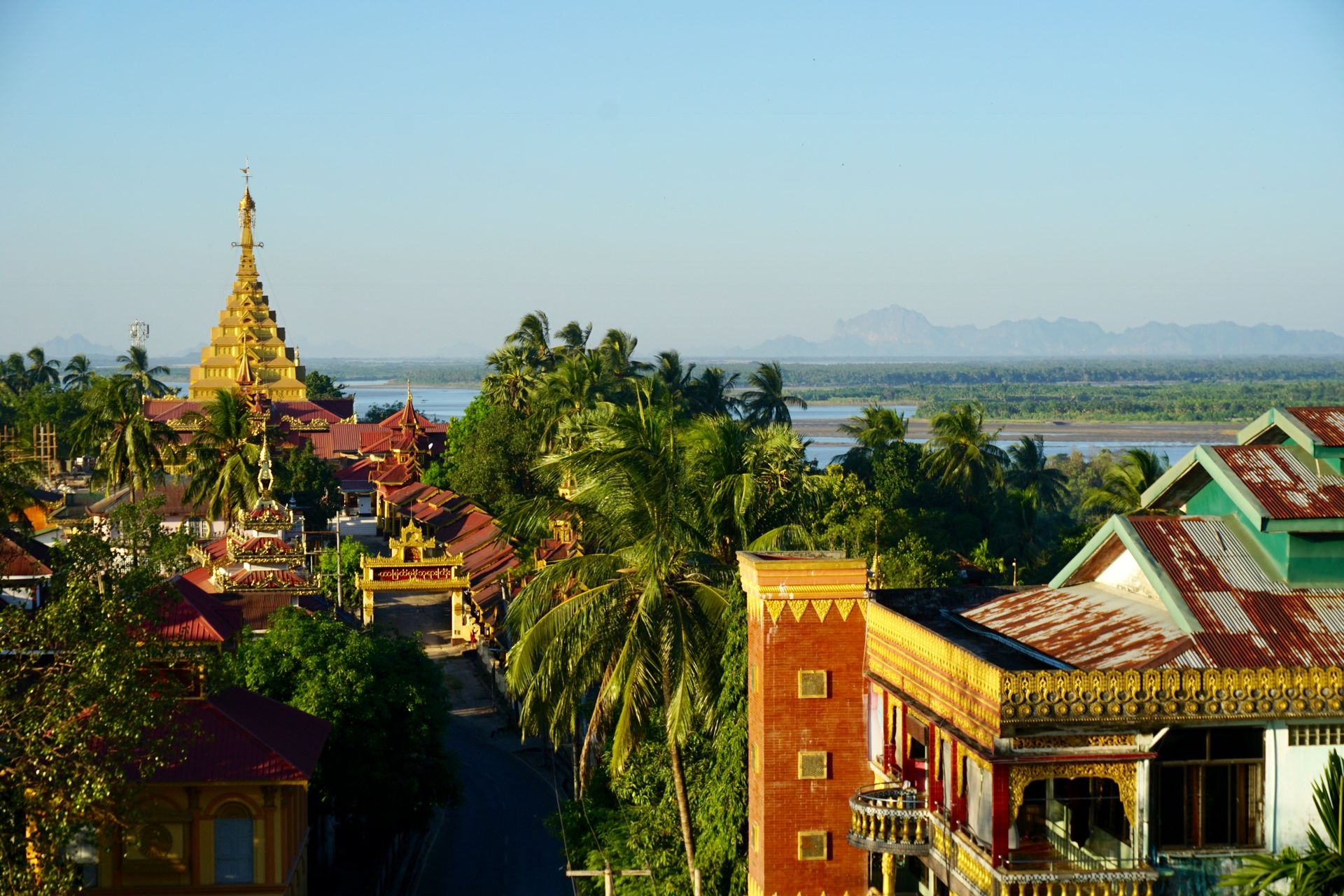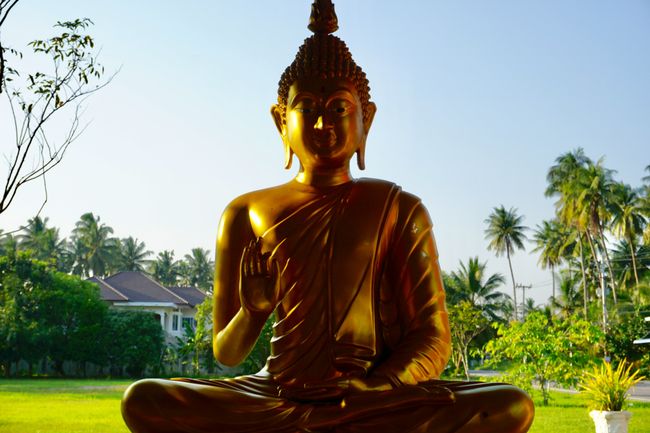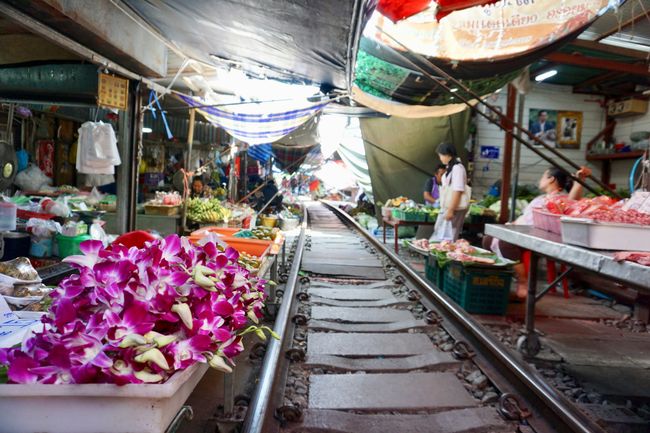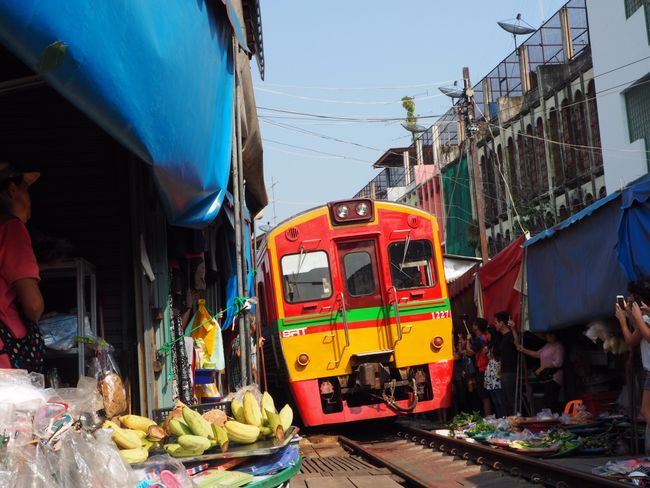Day 33: On Thailand's Rails
已发表: 03.11.2018
订阅时事通讯
Because Lake Toba sank under heavy rain, we spontaneously booked a flight to Bangkok and took a rickety train southbound. Merchants on the train sold boiled eggs and sugary desserts.
The Ratchaburi train station, where we finally disembarked, radiated a calm and relaxed atmosphere. From there, we hopped on a TukTuk, a covered motorbike with a cab. Our fast-paced driver, who constantly laughed to himself, fearlessly took the curves and brought us to our accommodation.
On the roadside, papayas, coconuts, and pomelos grew, which is why this area is also known as the orchard of Thailand.
In Samut Songkhram, we visited a market that is crossed by a train three times a day, barely missing the frog legs and passion fruits laid out on the floor. With great composure, the vendors move their goods aside when the warning sound of the approaching train is heard. As soon as the train has passed, the market resumes right on the tracks.
Special encounters in the villages around Samut Songkhram included: a 5-year-old Thai child who played Minecraft incessantly on his phone and strangely understood and could respond to every English sentence, even with uncommon words; two monks who enthusiastically showed us their temple; a woman who first rode past us on her motorbike, only to return shortly after and offer us her help with a Google translation "How can I assist you?" on her phone; an old woman who brought us a new plate of bite-sized fruit every half hour. Through her, we also got to know pomelos, a grapefruit-like and very delicious fruit.
After a few days of rural life, we continued our journey to the city of Hui Hin. A minivan heading south picked us up under a highway bridge.
订阅时事通讯
回答
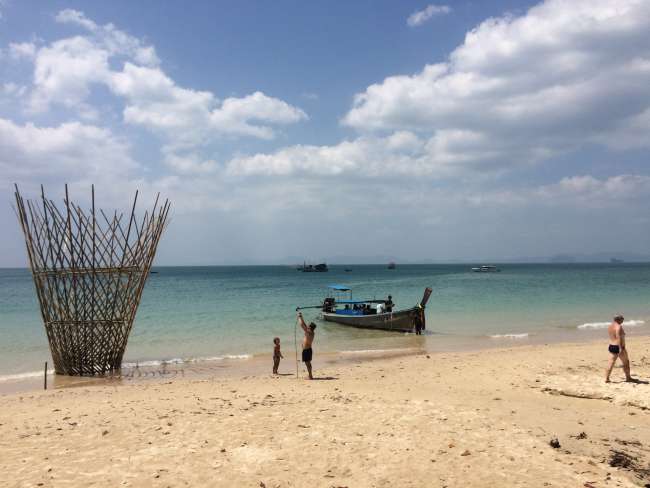
旅行报告泰国
